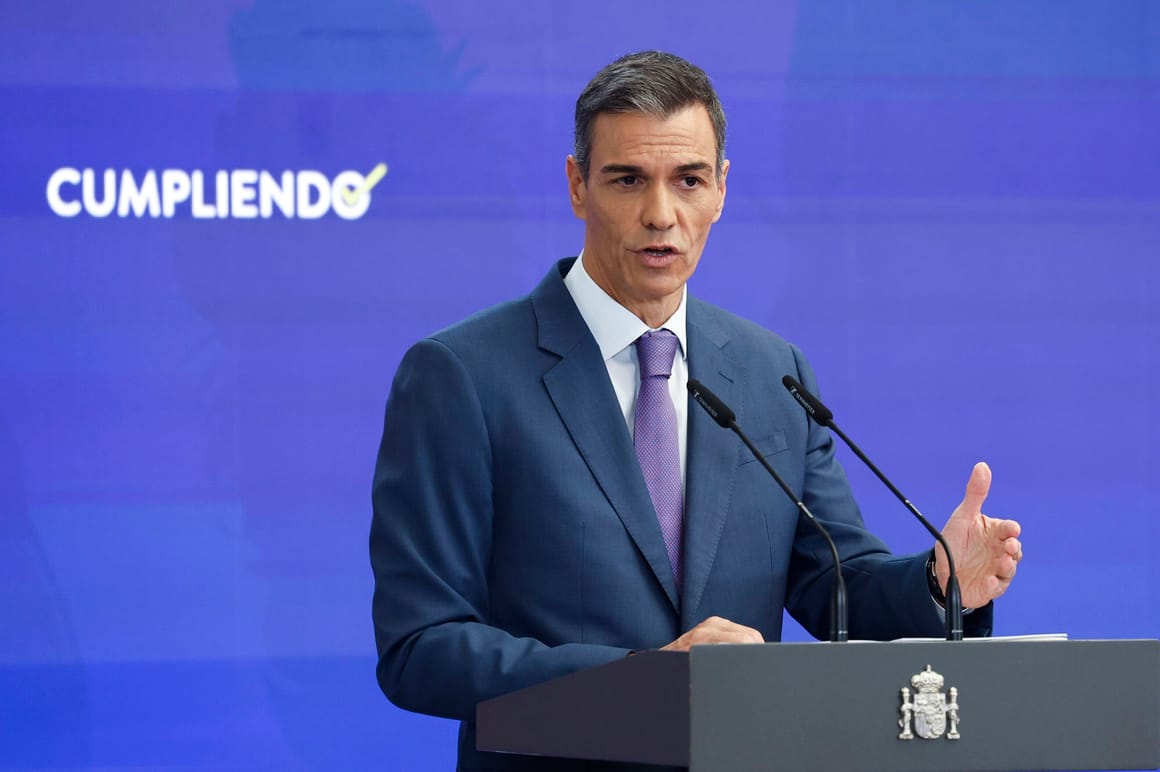Politics
Spanish Politicians Resign Amid CV Scandal and Fake Credentials

A surprising wave of resignations has hit Spain’s political landscape as multiple officials have stepped down following revelations of fabricated academic credentials. This summer, instead of enjoying the sun, politicians are scrambling to verify their qualifications in light of the revelations of at least three high-profile resignations.
The first significant case arose from the center-right People’s Party (PP) when Noelia Núñez, the party’s deputy secretary, was found to have misrepresented her educational background. While her profile on the Spanish parliament’s website claimed she held a “dual degree in Law and Public Administration,” investigations revealed she had no degree at all. Further scrutiny revealed that her affiliation with Guatemala’s Francisco Marroquín University, where she purportedly taught a Political Science course, falsely asserted she held a degree in English Philology.
Núñez’s resignation followed a meeting with opposition leader Alberto Núñez Feijóo, marking a challenging time for the PP. Since May 2023, the party has positioned itself as a clean alternative amidst allegations of corruption within the ruling Socialist Party. The PP promptly ordered its officials to review their credentials, aiming to prevent further embarrassment.
The scandal deepened just days later with the exposure of José María Ángel Batalla, a Socialist Party official responsible for overseeing reconstruction efforts after devastating floods in Valencia. Batalla claimed to have a degree in Archival Science and Library Science from the University of Valencia, a claim that fell apart as the university did not offer that program until 1990. His resignation not only adds to the mounting pressure on the Socialist Party but could also lead to legal repercussions, as Batalla used the false degree to gain entry into Spain’s public service in the early 1980s.
The third resignation came from Ignacio Herrero, who held a significant role in Extremadura’s regional government. Like Batalla, Herrero claimed to have received a degree in Marketing from CEU University before the institution even offered that title.
In Spain, university degrees are not mandatory for parliamentary positions, but there is significant social pressure to possess academic qualifications that reflect competence. The increasing number of universities in Spain over the past two decades has made higher education more accessible, with nearly half of Spaniards aged 25 to 34 holding degrees today. However, this trend contrasts sharply with the 22.5 percent of Spaniards who held degrees in 2000, highlighting a generational shift in educational attainment.
Past incidents involving misrepresented qualifications have plagued Spanish politics. Former PP leader Pablo Casado faced public backlash for claiming a postgraduate degree from Harvard, which turned out to be a mere attendance certificate from a three-day course. Similarly, former Socialist Health Minister Carmen Montón resigned over plagiarism in her master’s thesis, while former Madrid regional president Cristina Cifuentes was embroiled in a scandal regarding manipulated academic records.
In response to the recent wave of resignations, Deputy Prime Minister Yolanda Díaz emphasized the need to address the underlying class-based perceptions surrounding university degrees in Spain. She asserted that politics should not solely be a domain for those with formal academic qualifications and highlighted that many effective politicians lack degrees. “Anyone can be a politician,” Díaz stated in an interview on Telecinco, advocating for the inclusion of individuals whose circumstances may have hindered access to higher education.
The unfolding scandal raises critical questions about transparency and integrity in public office, pushing Spain’s political parties to re-evaluate the standards of qualification for their representatives. As the summer progresses, the implications of these resignations could resonate well beyond the immediate political landscape.
-

 Top Stories3 months ago
Top Stories3 months agoTributes Surge for 9-Year-Old Leon Briody After Cancer Battle
-

 Entertainment4 months ago
Entertainment4 months agoAimee Osbourne Joins Family for Emotional Tribute to Ozzy
-

 Politics4 months ago
Politics4 months agoDanny Healy-Rae Considers Complaint After Altercation with Garda
-

 Top Stories4 months ago
Top Stories4 months agoIreland Enjoys Summer Heat as Hurricane Erin Approaches Atlantic
-

 World5 months ago
World5 months agoHawaii Commemorates 80 Years Since Hiroshima Bombing with Ceremony
-

 Top Stories3 months ago
Top Stories3 months agoNewcastle West Woman Patricia Foley Found Safe After Urgent Search
-

 Top Stories5 months ago
Top Stories5 months agoFianna Fáil TDs Urgently Consider Maire Geoghegan-Quinn for Presidency
-

 World5 months ago
World5 months agoCouple Convicted of Murdering Two-Year-Old Grandson in Wales
-

 World5 months ago
World5 months agoGaza Aid Distribution Tragedy: 20 Killed Amid Ongoing Violence
-

 World5 months ago
World5 months agoAristocrat Constance Marten and Partner Convicted of Infant Murder
-

 Top Stories4 months ago
Top Stories4 months agoClimbing Errigal: A Must-Do Summer Adventure in Donegal
-

 Top Stories4 months ago
Top Stories4 months agoHike Donegal’s Errigal Mountain NOW for Unforgettable Summer Views









